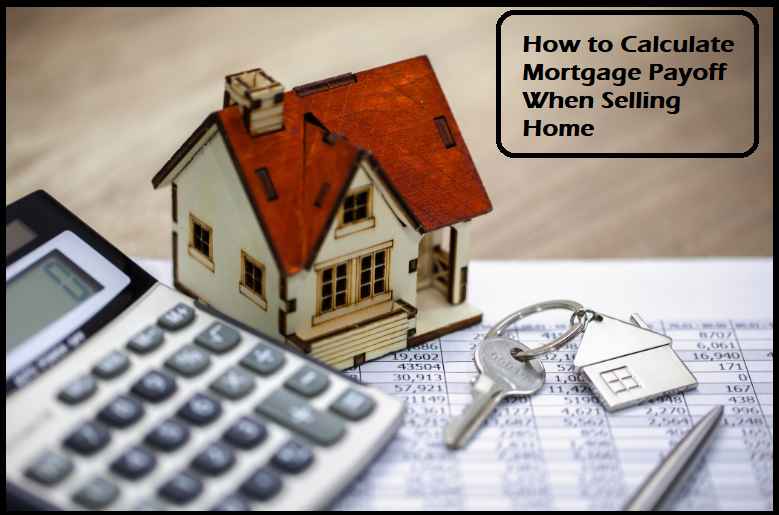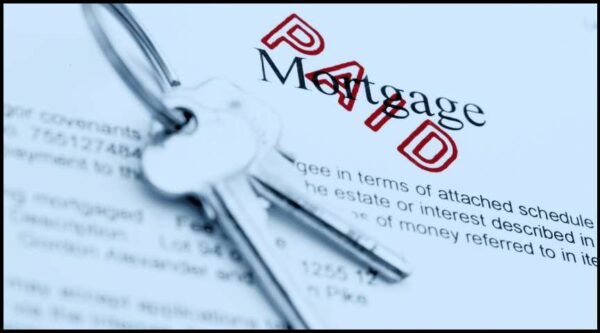How to Handle Mortgage Payoff When Selling a House Like a Pro
How to Calculate Mortgage Payoff When Selling Home: Selling a house Is An essential financial decision that requires a variety of aspects, including the calculation of the mortgage payment.
Knowing how to calculate the mortgage payment when selling your home is vital for A smooth And profitable transaction.
In this article, we’ll give you a thorough guide to calculating your mortgage’s payoff, allowing you to make informed choices and manage the selling process confidently.

What is a Mortgage Payoff?
Before we get into the math And do the calculations, let’s clarify what a mortgage payout is. A mortgage payoff is a total amount needed to settle and satisfy your mortgage loan fully, which includes Any principal balance outstanding as well as accrued interest and the possibility of prepayment penalties.
Suppose you’re preparing to sell your home. In that case, it’s essential to determine the exact amount needed to settle your mortgage to control your finances And avoid unanticipated costs in The closing process.

Understanding the Mortgage Payoff Process
Calculating the mortgage’s payoff requires various considerations, such As The remaining loan balance and interest rates, prepayment penalties, And the closing date.
To help you navigate The procedure efficiently, we’ve laid out the steps In The following paragraphs:
Step 1: Gather Mortgage Details
First, you need To collect all the information needed for the mortgage. This includes the initial loan amount, interest rate, loan period, And prepayment penalties. These details Are available in your mortgage paperwork or by contacting the lender directly.
Step 2: Determine the Outstanding Principal Balance
The next step is to find the principal amount of your loan. This is the balance that you owe to the lender. It is usually found in this information on the latest mortgage statements.
You should contact your lender to request an updated payoff statement if you need help locating your statement.
Step 3: Consider Prepayment Penalties
Certain mortgages might be subject to prepayment penalties if you repay your mortgage before the agreed-upon period. These penalties are intended to pay back The lender for any potential loss of interest.
Check your mortgage contract to determine if prepayment penalties Are in place, And then factor these into your calculation.
Step 4: Calculate Accrued Interest
If you decide To sell your house, You will have To make payments on The mortgage until The date you close. To determine The amount of interest you have accrued, you must determine the days between the last payment date And The closing date.
Divide This by your daily interest rate, which can be calculated by the year-long interest rates by the number of days in 365.
Step 5: Add Up the Total
Once you’ve collected all The information you need and have considered penalties for prepayment And accrued interest, it is possible to add the total mortgage payment. Take the principal balance, prepayment penalties, And accrued interest to determine the final amount.
Is it possible to sell my house if I have a mortgage?
First, yes, you can sell your house with A mortgage. Do you remember all the paperwork you signed when you purchased the property? In the packet, there was a section that stated that the company or bank which holds the mortgage has an initial lien position.
It means they are the first payment when the home goes up for sale. (There are also second And third places, but That’s another story.)
As time passes, it’s normal for your home to increase in value. At The same time, you pay your mortgage each month. If you decide To sell your house, It will be valued higher than when you purchased it—perhaps $10’s to $100’s of thousands of dollars in profit.
If your home isn’t completely paid off, you will not receive this amount of cash.
The remaining balance for the home mortgage (The Payoff) will be paid first.
If the balance of your mortgage exceeds that of the worth of your home, it’s referred to As A short sale. It’s a different method.
How does your mortgage get paid off when you sell your house?
Alongside an agent for your real estate, you’ll find many other people involved when you sell your house. The most important of them is an escrow or title or escrow firm. They Are responsible for The bulk of The paperwork required for The sale.
In addition to handling the actual transfer of title and transferring the title, the title company determines the amount of money you have to pay on the actual date of the sale. The amount you pay off changes each when you pay a mortgage.
When The contract Is signed on The day That The new owner of your house closes, they will transfer the funds to the title company, which will hold the money in an escrow account.
A side note: the other money you pay during the sale process, such as earnest money, is deposited into the same account.
On the day of the sale, the proceeds are distributed to relevant people involved in the transaction.
The payment order may change, but the general pattern is as follows:
- The bank that holds the mortgage (mortgage payoff when selling a house)
- Outstanding property taxes (if any)
- Outstanding liens from lawsuits or judgments (if any)
- Any HOA fees
- The Title Company, Attorneys, or Escrow companies involved in the process (closing costs)
- The real estate brokers or agents in the transaction
- Any balance remaining is your Profit!
Do you have to pay off your mortgage when you sell your home?
Yes, you have To make payments on your mortgage when you sell your house. Your Lender has A document stating they will be first paid if the home Is sold before anyone else.
This is because, once the house is sold, it is no more collateral to the Bank.
It seems simple; however, you likely already had a contract with it before purchasing the property. It was in the original loan package and the documents you signed when you bought the property. It’s not something you can make to alter it.
If you’ve paid your monthly bills punctually, the Bank won’t be able to force you into a sale. Your home is protected in this way.
Also, if you own A second mortgage or A home equity loan (HELOC), they will be paid simultaneously with your first loan.
Is it better to pay off the mortgage before selling?
Make the payment on the mortgage after selling. For the majority of people, it’s impossible! The average balance on a mortgage is more than $215,000! Who has that much money?
The process is set up to ensure that when the closing date comes around, the old mortgage is completed (that’s the mortgage), and the new loan for your home is in place (for you, the owner).
The process of paying your home mortgage is a goal every homeowner wants to attain. Who doesn’t want A home that is free and clear? But having a mortgage isn’t always bad. Take The time To review your financial situation or speak with A financial professional should you have concerns.
conclusion
Calculating the mortgage’s payoff after selling your home requires finding the balance of your mortgage and requesting a statement of payoff by your mortgage lender, removing any outstanding charges or liens, And then subtracting the mortgage payout amount from The remainder of the funds from the sale.
It is crucial to check with your loan servicer or lender regarding Any more premature pre-payment penalties or other expenses related to paying off the mortgage.
ALSO CLICK HERE : Can You Negotiate Student Loan Payoff
FAQs
Q.1 What is a mortgage payoff statement?
ANS. A mortgage payoff report is An official document from a lender that outlines the amount needed to repay the mortgage in a set timeframe.
It contains the amount of your loan, the interest rate, and any additional fees you Are accountable for as of the payment date.
Q.2 How can I calculate my mortgage payoff amount?
ANS. Calculate your mortgage’s payoff amount by using A formula finding The rate of interest per day by multiplying the balance of your loan with The rate of interest And then dividing by the number of days in 365.
This gives you the daily interest rate that could be divided by the days left until the date for payment to determine the total amount due to payoff.
Q.3 Where can I find my current mortgage balance?
ANS. You can check The current balance of your mortgage on The latest mortgage statements or by calling your lender.
Q.4 What fees should I subtract from the sale price of my home when calculating my mortgage payoff?
ANS. It is recommended to subtract any outstanding fees or liens from the value of the home’s sale. This could include closing costs, transfer taxes, fees for realtors, And Any other costs related to selling your home.
Q.5 Can paying off a mortgage early result in pre-payment penalties or other fees?
ANS. Yes, settling an early mortgage could result in penalties for prepayment or other charges. This should be noted on your statement of payment. However, It’s always An excellent idea To check with your loan servicer or lender.
Q.6 How can I save on interest and shorten my mortgage term?
ANS. Utilizing a mortgage calculator can assist In determining whether the addition of additional payments or bi-weekly payments could save interest And reduce the length of The mortgage.
Q.7 What is my payoff amount?
ANS. You’ll have to pay your amount of payoff to meet the conditions you have agreed to for the mortgage And stop the debt.
Q.8 Is my payoff amount the same as my current balance?
ANS. The amount you pay off differs from your current balance. The balance you have at present may be different from the amount you will need to pay to satisfy the loan.
Q.9 How do I request a payoff amount from my lender or servicer?
ANS. If you’re thinking of The possibility of paying off your mortgage, you may request A repayment amount from your servicer or lender.
Q.10 Does it cost money to get a mortgage payoff statement?
ANS. Paying off your mortgage in time or earlier could have additional costs related to it. These fees should be included on your statement of payoff.
